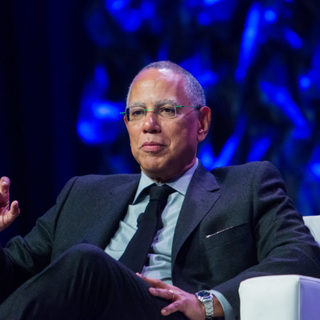September 27, 201969 words
Published: September 27, 2019 | 69 words
Shadowproof is a financially independent news organization. All of our funding comes from small donations made by readers like you.We use your donations to hire freelance writers and cover our operating costs. Monthly membership subscriptions give us the stability we need to make...
CRITIC REVIEWS
There don't seem to be any reviews yet.
PUBLIC REVIEWS
Begging the Question
October 1, 2019
The author uses an unrelated incident to justify his claim that the NYT outed the whistleblower. That incident could perhaps bear on the NYT's motive for its report—the use of the word “venal” is explicit in saying the publisher was acting wrongly for corrupt financial reasons—but that is not central to the thesis that the Times actually exposed the whistle-blower.
Meanwhile, the central thesis—that the whistleblower was more identifiable due to the NYT report—is badly developed, and important information was left out. Firstmost, the complaint originated from within the CIA, so the notion that saying it was a CIA employee was “identification” doesn't pass the sniff test.
Secondly, the whistleblower said that s/he was told by multiple people about the call; most of those persons serve at Mr Trump's pleasure and can be arm-twisted to connect the dots as to who the whistle-blower is. The fact that the whistle-blower cited sources across different agencies is also an indication that s/he is a person with wide intelligence contacts, not what you'd expect from a silo'ed analyst.
The NYT's description *IS* a potential problem, but the article itself makes an un-nuanced broadside and seems more designed towards slagging the NYT's business than informing readers about the challenges of knowing what our government is doing.
October 1, 2019
Political Agenda
September 27, 2019
Passages like the below make this an opinion piece more than a news piece, and not just an opinion piece but an unabashedly partisan opinion piece at that:
"Recognizing that outing the whistleblower may not be viewed as an appropriate decision, the report included a quote from Dean Baquet, the executive editor of the Times, where he stated, “The role of the whistleblower, including his credibility and his place in the government, is essential to understanding one of the most important issues facing the country—whether the president of the United States abused power and whether the White House covered it up.”
*It actually is not. The contents of the disclosure are all the public needs to determine whether the president committed an abuse of power, covered up an abuse of power, and engaged in conduct that rises to the level of impeachment.*"
We also see this:
This is not the first time that Baquet endangered a whistleblower. In fact, they previously made a *venal* decision that affected a person who worked for the CIA.
September 27, 2019
Lack of Reliable Sources
September 27, 2019
Although I may agree with much of author Kevin Gosztola's assessment, I don't like when journalists impart intent on behalf of the subject as he did here, "The Times published this identifying information because they wanted the benefit of being known as the first outlet to reveal the person who sparked an impeachment inquiry. It was a decision fueled by Times management, who saw dollar signs attached to the traffic spike their news website would enjoy." There are also a few too many uncited sources, so I reviewed it as Lack of Reliable Sources.
September 27, 2019
Speculation
September 27, 2019
This article makes a fair amount of speculation; however, it does point out some reasonable assertions regarding sources.
The NY Times is far from innocent in this, but the whistle blower is also making a mountain out of a mole hill as well.
September 27, 2019
Great Context
September 27, 2019
This user only left a rating
September 27, 2019
